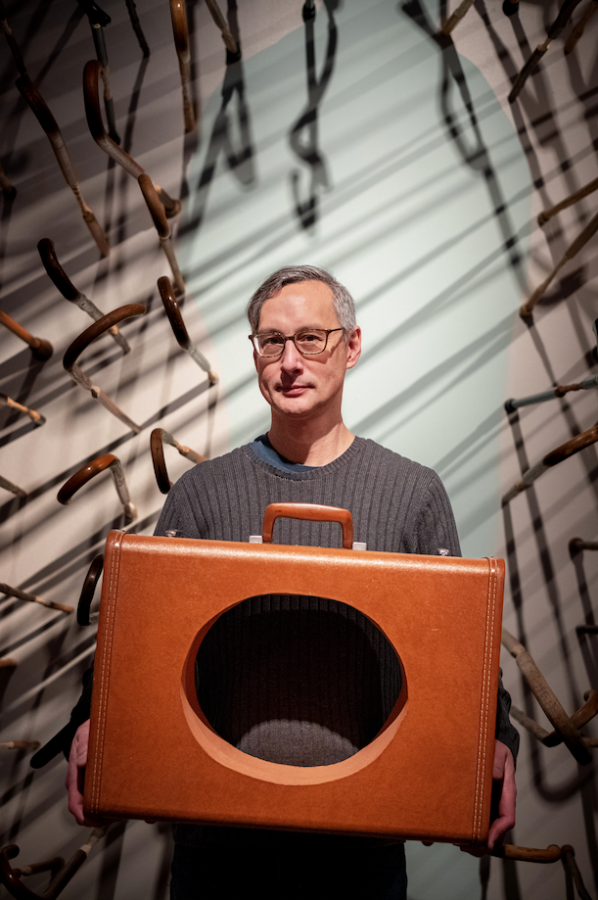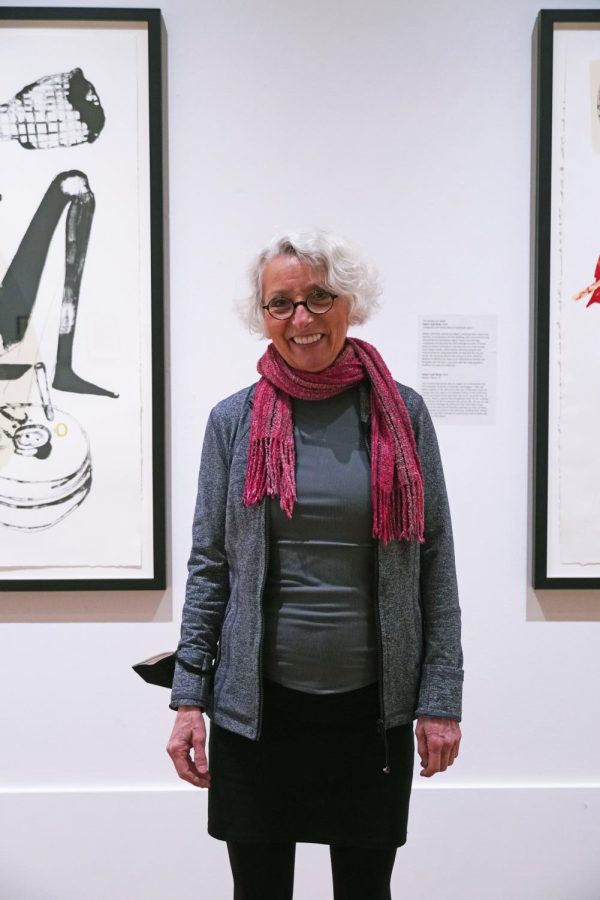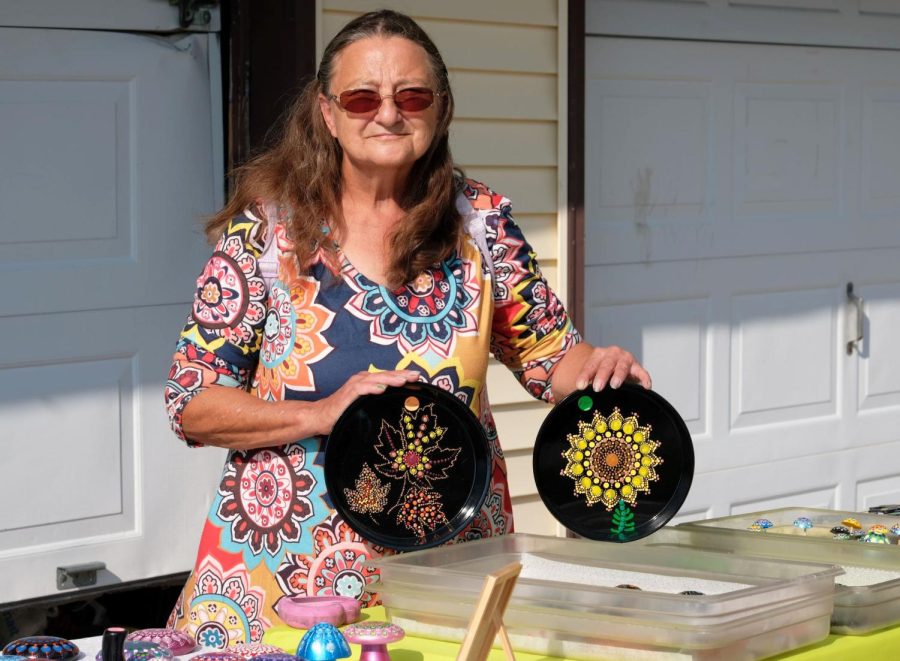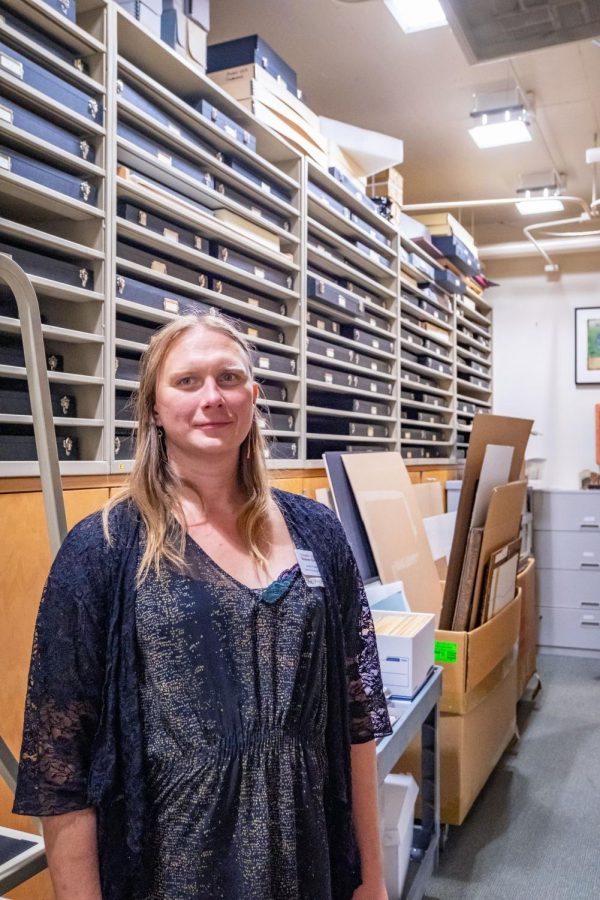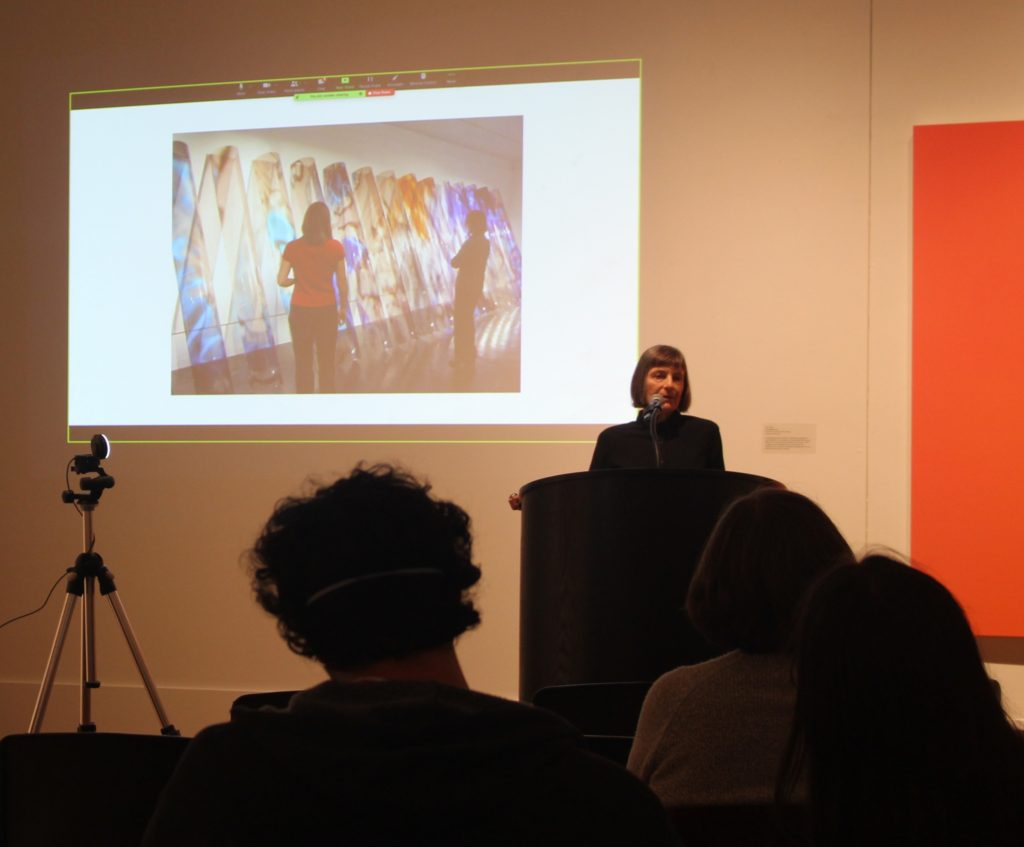By Saiham Sharif
sharifsa@grinnell.edu
For Liam Stowe ’18, art is much more than a form of entertainment.
“I see it as an impetus to think creatively no matter what I do personally or professionally in the future. I want to continue maintaining its centrality to my life as well because I’ve found infinitely more personal fulfillment with it than I had in the time that I took it for granted,” Stowe wrote in an email to The S&B.
His first foray in the arts began with music. “I spent from age seven to seventeen playing classical music,” Stowe said. Yet he didn’t bind himself to just playing music in his adolescence. “I started acting five or six years ago, in community theatre, and then at each school I was at, until Grinnell.”
However, playing the same genre of music for too long wore down on his tastes.

“It got to the point that it felt like something was missing. Instead of doubling down and taking myself out of music, I needed to take a step back and reassess if it was something I needed in my life,” Stowe said.
For Stowe, finding himself as an artist required both reflection and experimentation. He’s often tried out different genres, taken breaks and thought about what works for him and what doesn’t. Theatre has become his current mainstay. Beyond just providing him the outlet of acting, it has brought him wonderful personal connections.
“I became addicted to the idea of theatre. I got the luxury of finding a really great community,” Stowe said.
His first on campus performance was in a student production of Shakespeare’s “The Tempest.” Reflecting back, Stowe is “most proud of [his] performance in ‘The Tempest’ because it had the most moving parts. It also had a lot of gags outside the show.”
Immediately after acting in “The Tempest,” he moved onto a Salman Rushdie adaptation. Last year, he played a part in “The Playboy of the Western World.” Currently, he is set to play one of the secondary characters in “Nice Fish,” which opens on Oct. 6. Soon he will play Frankfurter in the campus production of “The Rocky Horror Picture Show.”
“I’m in a place where I can enjoy acting more and more,” Stowe said.

Though he has often worked to make the audience laugh, Stowe doesn’t shy away from trying new roles.
“I’ve mainly been in comedy. At that, I’ve tended to be the comedic relief, or the villain in the show,” Stowe said. “But, the last three shows I’ve done, I haven’t been straight comedic characters and that’s been an interesting challenge because I had to be taken out of my comfort zone in a way that I don’t think I ever have. It’s been exploring my acting range in a way that substantially made me a better actor.”
While performing in plays provides pleasure, it requires a great amount of effort. His rehearsals for “The Playboy of the Western World” involved “a lot of Irish dialect training. We couldn’t speak in a dialect that wasn’t Irish on stage.” Acting, however, has beneficially provided structure to his life.
“I took for granted that I had nights off. I’m very cognizant of the fact that I have a span from 4 to 6 [p.m.] and have to be on [homework].”
Theatre and playwriting lends itself to connecting with Stowe’s academic majors, English and political science. However, “I tend not to write drama,” he said.
While studying abroad, he joined the Copenhagen Writing House and renewed his passion for creative writing. He focuses on poetry and other genres.
“I would like to star in a Shakespeare [show] at some point in my life, to see if I can maintain the acting range that a protagonist needs,” Stowe said.
Remarking on the sad truth that many hegemonic works use sight gags and that the bulk of Shakespeare’s humor relies on erection jokes, Stowe wants to work on a play with “a dialog and comedic precision that a modern audience would appreciate.”
When asked about his inspiration, Stowe wrote “Besides Kay Walkingstick and Claude Shannon for embracing many disciplines, I think probably Philip Seymour Hoffman and Liv Ullman for acting. Simply because they were able to give substantial depth to every role they did and demonstrate to the audience that they had really internalized a character.”

Photo by Helena Gruensteidl































































